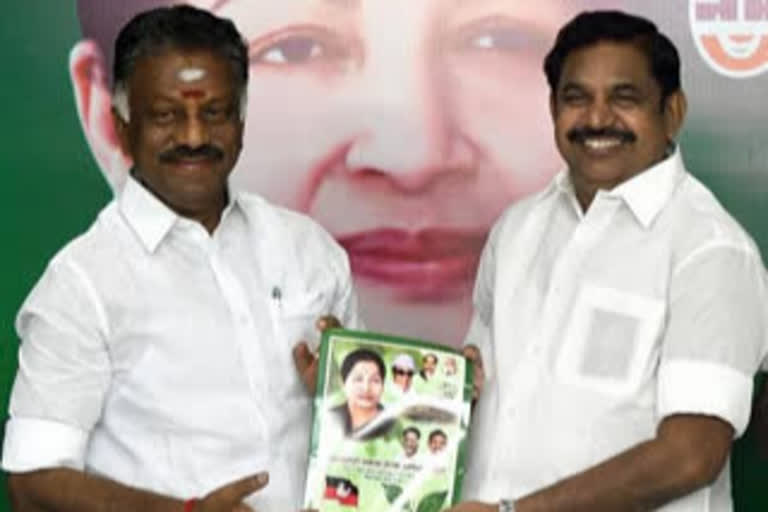Chennai: Back to the basics! The decision of the ruling AIADMK to reverse its stand on the Citizenship Amendment Act and the demand to establish a separate Tamil Eelam among other issues showcases the party’s deliberate return to its founding principles.
While opening remarks of both the arch-rivals refer to how their parent movement was born and nurtured by the likes of Periyar and Anna, besides striking a chord with Tamil Nationalism.
A change in tone and tenor is visible, though.
A few days back, the chief minister and joint-coordinator of AIADMK - Edappadi K Palaniswami was seen asserting in a media conclave that the alliance with BJP was limited to the election and will never be ideological. Seen as making amends and having come to terms to accede it, AIADMK which voted in favour of the Act in Parliament said it would impress upon the Centre to drop CAA.
The promise to impress upon the Centre to drop CAA is sure to irk the BJP.
Lankan Tamils
AIADMK reiterates the formation of separate Tamil Eelam, and rendering justice to Tamil massacre committed in the Island Nation through International Criminal Court or International Impartial Independent Mechanism. Similar points were made by the DMK which was also insisting on a referendum to the choice of Lankan Tamils for a permanent solution. AIADMK and the DMK are on the same page on according Indian citizenship and permanent resident status for those choosing to stay in India.
Dismissed as a non-electoral issue by a section of Marxists in India, Lankan Tamils issue have always been at the core of political scape of both the Dravidian majors and will remain the same this time as well. Manifestation - their poll plank.
Also Read:Kamal Haasan files nomination from Coimbatore South
Tamil Nationalism
While both parties want Tamil to get official national language status, DMK promised that it would bring about legislation securing 100 per cent jobs in Tamil Nadu government offices and 75 per cent of jobs in the private sector to Tamils, a longtime demand of Tamil Nationalist movements functioning in the state.
